Deep look at Spousal Benefits and Filing Dates
Published: 9/6/2023
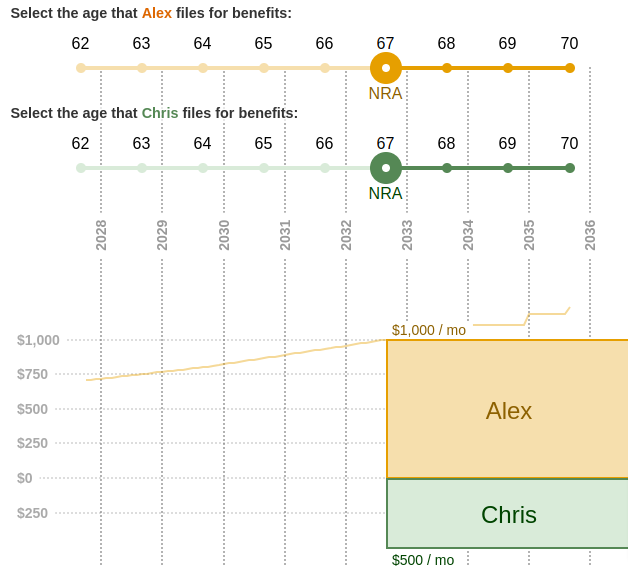
A spousal benefit is the benefit a person can receive based on their spouse's earning record.
In the simplest case, this can be half of the spouse's own benefit. For example, if:
- Alex has a $1,000 / mo Primary Insurance Amount.
- Chris has no earnings.
- Alex and Chris both file for benefits at Normal Retirement Age.
In this situation, Spouse B will receive a spousal benefit of $500 / mo.
You can explore this example with this link.
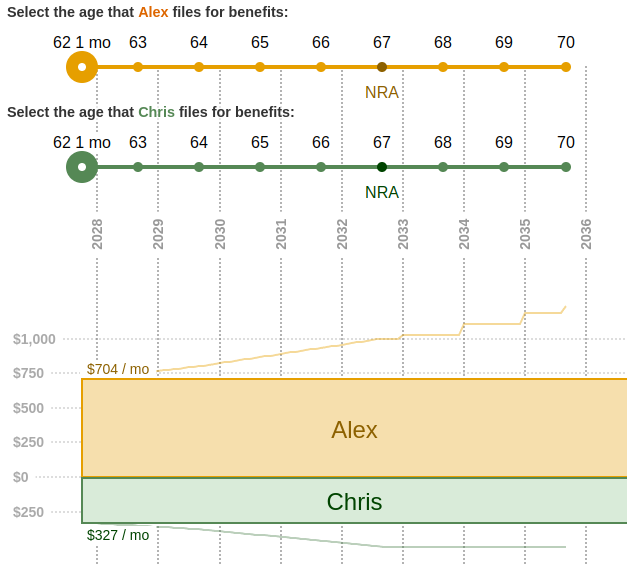
Early Filing
What would happen instead if Alex and Chris filed earlier than Normal Retirement Age, such as at age 62 and 1 month?
In this case, Alex would receive a reduced benefit of $704 / mo, and Chris would receive a reduced spousal benefit of $345 / mo.
No longer is Chris's benefit half of Alex's benefit. Alex's personal benefit is reduced by 6.67% for the first 3 years and 5% for each additional year filed early. Chris's Spousal benefit uses a different reduction formula: 8.33% for the first 3 years and 5% for each additional year filed early.
There is a larger penalty for extra early filing for spousal benefits than for personal benefits.
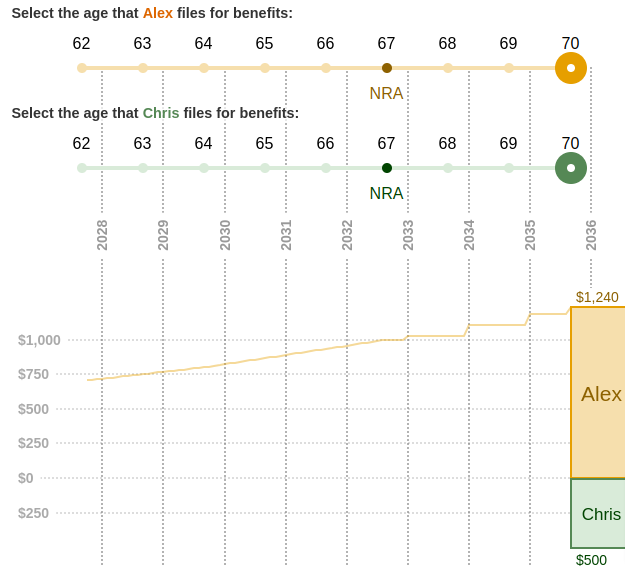
Late Filing
What would happen instead if Alex and Chris filed later than Normal Retirement Age, such as at age 70?
In this case, Alex's benefit would be increased by 8% for each year filed late making the final benefit $1,240 / mo.
Chris's spousal benefit would remain the same at $500 / mo. This is because unlike personal benefits, spousal benefits do not increase from delayed credits for filing after Normal Retirement Age.
Personal and Spousal Benefits

Normal Retirement Age
In all of the above examples, the lower earning spouse (Chris) has $0 in earnings. What happens if Chris has earnings of their own?
Let's imagine that Chris also has a $100 / mo personal benefit. This is small enough relative to Alex's benefit that Chris still is eligible for a spousal benefit.
You can use this link to explore the scenario.
If Alex and Chris both file at Normal Retirement Age, nothing is changed. Chris's total benefit is still $500 / mo, which is $100 / mo from their own benefit and $400 / mo from the spousal benefit.
This leads to a misunderstanding that the spousal benefit is simply the higher of your own benefit or half of your spouse's benefit. This only works out this way if both spouses file for all benefits at their own Normal Retirement Age.
Early Filing
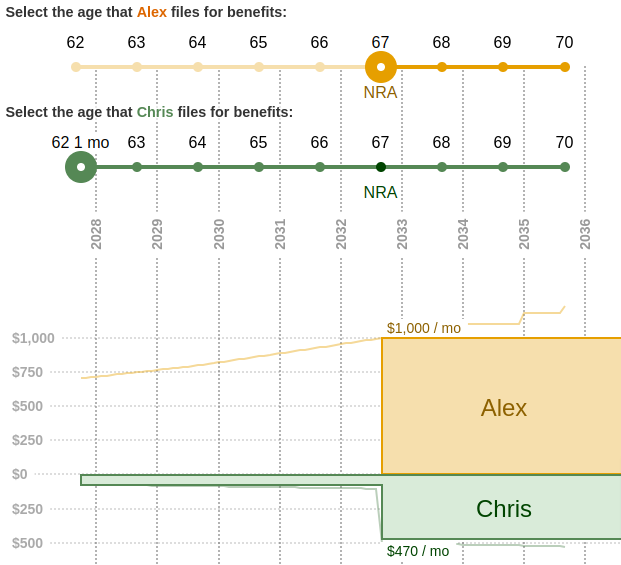
What happens if Chris files early at age 62 and 1 month?
In this case, Chris's personal benefit is reduced to $70 / mo due to filing early. Chris's spousal benefit is not reduced because that component didn't start until Chris's Normal Retirement Age at 67.
If Alex had filed earlier as well, Chris's spousal benefit would have been reduced as well. If Alex had filed at age 62 and 1 month, Chris's spousal benefit would have been reduced also.
Here we can see where the concept of the spousal benefit being half of the higher earning spouse's benefit doesn't work. In this case, Chris's spousal benefit is $400 / mo, not $500.
Late Filing
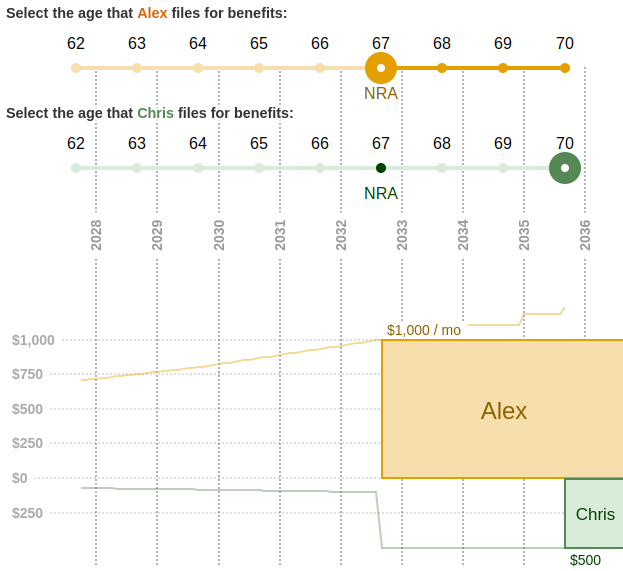
What happens if Chris files late at age 70?
In this case, Chris's personal benefit is increased to $124 / mo due to delayed credits from filing late.
However, the spousal benefit cannot increase the combined benefit for Chris to an amount greater than half of Alex's PIA. So, the spousal benefit is reduced by $24 / mo to $376 / mo to keep the total benefit at $500 / mo. [ssa.gov].
The resulting total is $500 / mo, which is $124 / mo from Chris's personal and $376 / mo from the spousal benefit.
Primary Earner Filing Date
Is Chris's spousal benefit amount affected by when Alex files?
No. The spousal benefit is based on your spouse's Primary Insurance Amount, not their benefit amount. So, in this scenario, Chris's spousal benefit is always $400 / mo.
However, the spousal benefit is reduced if Chris files for it before Chris's Normal Retirement Age. Chris cannot file for spousal benefits until Alex has filed for their own benefits. So, in some sense, Alex's filing date does affect Chris's spousal benefit in that it determines when Chris can file for spousal benefits.
Note that in the case of divorced couples where one is eligible for benefits on an ex-spouse's record, the filing date of the primary earner does not affect the spousal benefit amount. There are additional rules for this scenario not described here.